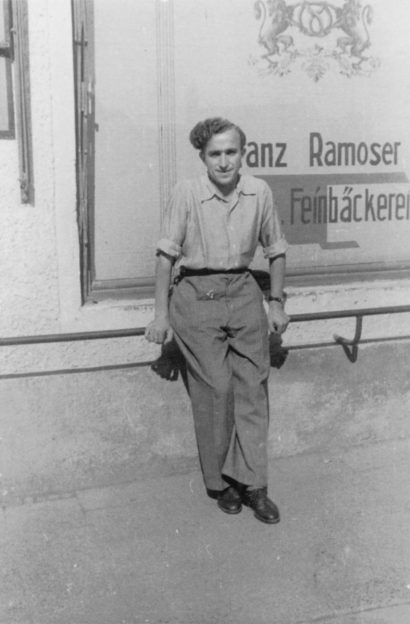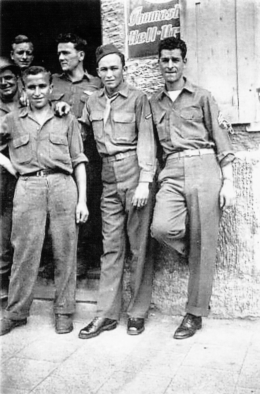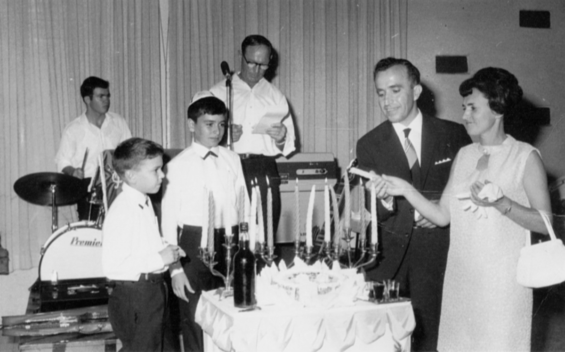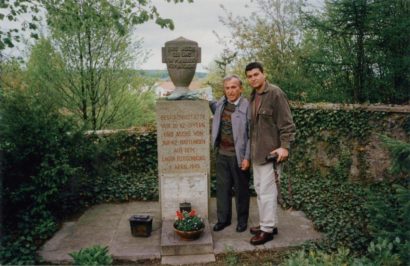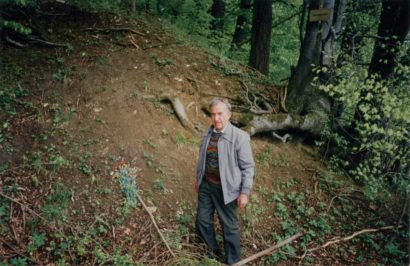Jakob Haiblum
born September 8, 1925
![]()
Jakob Haiblum, Eggenfelden 1946 (private collection)
“I had Uncles, Aunts, Brothers, Sisters – but no more”
Jakob Haiblum lived with his parents and six siblings in Starachowice, Poland, the town where he was born. He attended school there until the German invasion of Poland.
At the start of the war, the family was forced to move to the Jewish ghetto in Starachowice. For four years, Jakob worked as a forced laborer at the ovens of a munitions factory. In June 1944, he and one of his brothers were deported to the Auschwitz concentration camp, where they worked as forced laborers for IG Farben. The camp was evacuated in late 1944. At first, the prisoners were made to march on foot toward the west through ice and snow. After many days in open railway cars, Jakob Haiblum was sent first to the Buchenwald and then the Sachsenhausen concentration camps before arriving in Flossenbürg in early February 1945. Ten days later, he was sent to the Saal subcamp. Because the subcamp did not have enough barracks, 19-year-old Jakob was forced to sleep in an open burrow with only a thin, lice-ridden blanket to shelter him from the cold. Hunger and abuse were the order of the day. On April 20, the subcamp was ordered to evacuate. Jakob Haiblum was again sent on a death march on foot, this time toward Dachau. He arrived at Dachau on April 24, and was liberated by the US Army five days later.
By coincidence, Jakob Haiblum discovered his brother’s name on a posted list of survivors. They were reunited in Eggenfelden in eastern Bavaria. The two brothers were the only members of their family to survive: “I had uncles, aunts, brothers and sisters – but no more.” Jakob Haiblum remained in Eggenfelden until 1949, where he worked as a carpenter. He then followed his brother to Israel. He married in 1953, and went on to raise a family.
![]()
Jakob Haiblum (front left) with US soldiers in Eggenfelden, August 1946 (private collection)
![]()
Jakob Haiblum (right) with his wife Hinda and their sons Chaim and Josef at a family celebration, Tel Aviv 1970 (private collection)
![]()
Jakob Haiblum with his son Chaim at a memorial for the victims of the concentration camp, Saal 1997 (private collection)
![]()
Jakob Haiblum lays flowers at the site of the former Saal subcamp, 1997 (private collection)
The bodies of the prisoners who died at the Saal subcamp were burned at this location. Of more than 700 prisoners, more than one-third perished at the subcamp.
